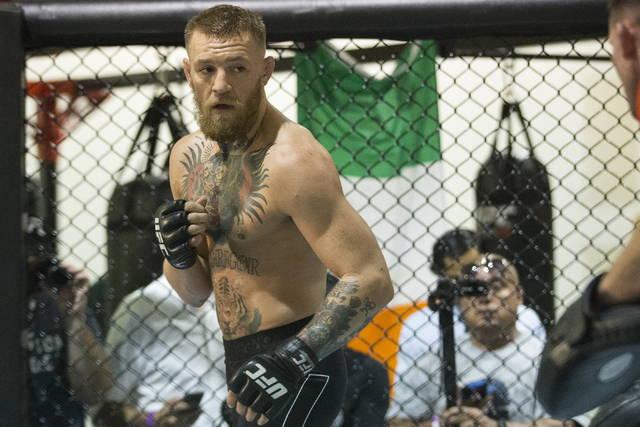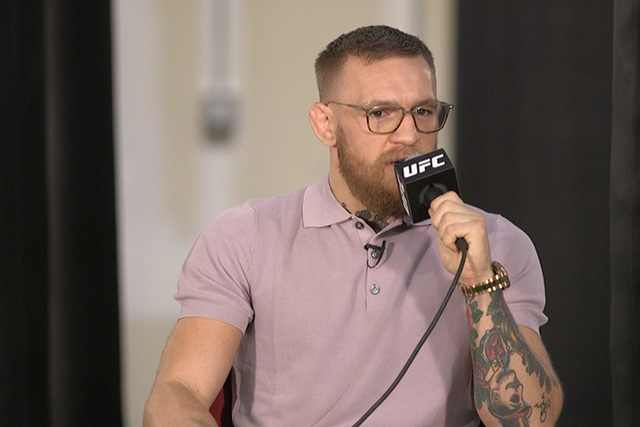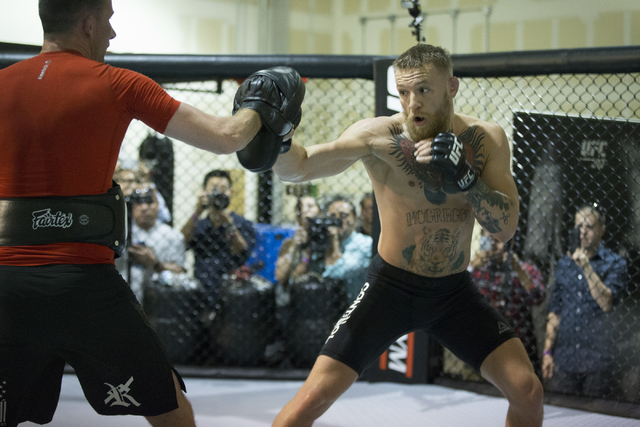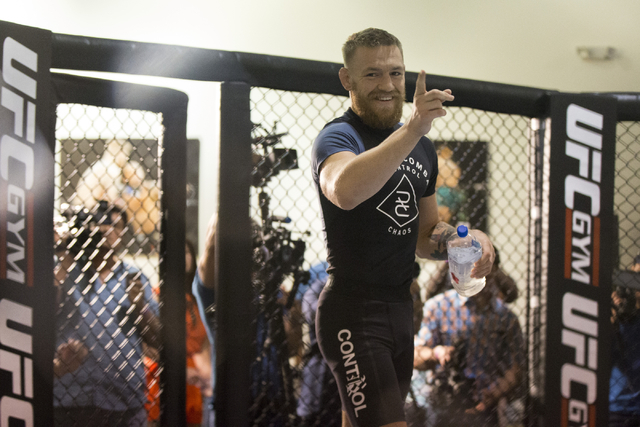UFC fighters’ union stands little chance unless top stars get involved




Gordie Howe wasn’t a fan. A teammate in Detroit had formed the first players’ union in the NHL in 1957, upset that owners refused to share books related to the pension fund. It got the teammate, Ted Lindsay, traded to Chicago. It also got others throughout the league shipped out or benched.
Howe then persuaded several Red Wings to withdraw from the union, players across the NHL followed, and the association collapsed. There was even a movie made about it for TV. “Net Worth.”
Mr. Hockey obviously had incredible pull with peers, and it’s going to take that sort of influence with an opposite agenda for the Professional Fighters Association to successfully unionize those in the Ultimate Fighting Championship.
Which means the likes of Conor McGregor would need to be all-in and not merely, as it appears today, squarely on the fence.
When it comes to last week’s announcement about the formation of the PFA to represent the collective interests of UFC fighters, that old line about a union only being as strong, effective and powerful as its members who participate isn’t necessarily true.
In this case, it must be the right members.
The right fighters.
The ones UFC actually needs.
McGregor is the face of the organization, and he will be the first to tell you that and all other things we should be terribly impressed about regarding his standing in the world of mixed martial arts and the lavish lifestyle it has afforded him. But it’s also true that with such fame and fortune comes influence, the kind that could either push the PFA agenda forward or help bury it while the body, um, concept is still warm.
“It is important to bunch together and support each other,” McGregor said at a media gathering Friday. “It’s a dangerous, crazy business we are in. We get in and risk everything. I have witnessed firsthand how these fighters risk it all.”
But. …
“Maybe in the future. Right now, I have to focus on myself. That might be selfish, but this is the position I’m in right now. I have a lot going on. I’ve got to focus on my own self right now. But in the future, maybe I will help spearhead something like that. If it is presented correctly. I wouldn’t just jump in if it wasn’t gonna be done right.”
OK, so he hasn’t even climbed the fence on which to sit.
It’s certainly his right, and it’s true McGregor has something on which to focus, meaning one of the most anticipated rematches in MMA history when he engages Nate Diaz at UFC 202 on Saturday at T-Mobile Arena.
Many have attempted to unionize UFC fighters over the years, to get them in line with other professional athletes and leagues in terms of wages and pensions and medical insurance and being able to collectively bargain important issues, to move them from independent contractors with absolutely no say or power in policy to employees with a voice. All have failed.
It would seem Jeff Borris, the attorney and sports agent who is counsel for the agency that represents Diaz and is spearheading the PFA, has as good a chance as any. He understands those obstacles that have impeded such a movement better than most, leading a group that is well versed in the world of labor struggles and those legal maneuvers that could potentially land fighters the benefits they desire most.
The initial hope from the PFA is obvious: That with new ownership comes a more open mind about unions, something those at Zuffa never welcomed before selling the UFC to a group from talent agency WME-IMG for a reported $4 billion. Being part of the mainstream pool of sports has always driven UFC brass, and by not fighting unionization now, the brand would even more resemble the major professional leagues in baseball, basketball, hockey and football.
“The scales have been tipped in favor of the UFC for too long,” a news release announcing the PFA stated. “It is time for the fighters — the one’s responsible for the UFC’s success — to receive their equal share.”
All of that is unquestionably true.
I still wouldn’t hold my breath.
The UFC as a private company has forever controlled every facet of its brand, unapologetically keeping an estimated 85 percent of revenues for itself. Perhaps the PFA can successfully get the National Labor Relations Board to recognize the union, or maybe it can enact legislation that would deem the fighters as employees.
But my guess is the part of this equation that has always enjoyed the majority of wealth isn’t going to suddenly promote and agree to an equal split of anything without strongly insinuating why a union would be bad for most fighters.
Translation: All those who could be easily replaced.
Which brings us back to McGregor and UFC stars like him, who can either choose the role of pioneers as others did to pave the way for today’s millionaires in the NFL and NBA and NHL and MLB or remain as independent as always while the majority of UFC fighters continue to be grossly underpaid and undervalued.
“Many fighters are not in a great situation,” McGregor said. “I am blessed. I am blessed with the situation I am in. I have worked very hard for this. I have came in, and I have put in the work to be in the situation I am in.”
Call me crazy, but I don’t hear a lot of Ted Lindsay in there.
Ed Graney can be reached at egraney@reviewjournal.com or 702-383-4618. He can be a heard on “Seat and Ed” on Fox Sports 1340 from 2 p.m. to 4 p.m. Monday through Friday. On Twitter: @edgraney
RELATED
UFC featherweight champ McGregor faces lots of opportunities
Conor McGregor continues crusade on social media for fight at UFC 200
Unions gunning for MMA fighters
BJ Penn once again scheduled for UFC return












